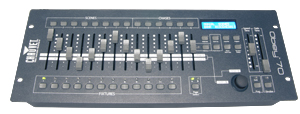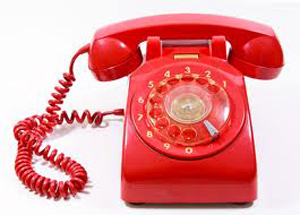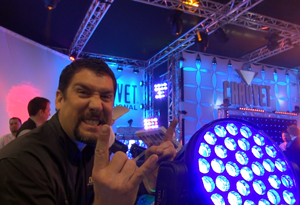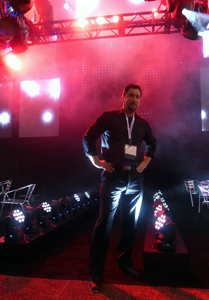Tech Talk: 5 Tips on On-Site Problem Solving
Posted on February 6, 2013Written by Mike Graham, product manager for CHAUVET Professional
One of my favorite lines from “The Breakfast Club” is “It’s an imperfect world. Screws fall out all the time”. Truer words have never been spoken. If you ask any seasoned show technician, they will tell you that they remember more shows that went wrong than went right. The trick is to know how to react when it all goes wrong.
This past week during the Super Bowl, the lights went out. When I saw that, my first thought was, “I’m glad I’m not there working.” My second thought was, “How will they get the lights back on and keep everyone in the stands safe while doing so?” From what I could tell on TV, it looked like the security team and the engineers at the stadium had a good action plan to cover the unthinkable happening. That could have been a complete disaster, but luckily for everyone at the stadium, it was fixed and the game went on.
Here are a few tips on how to keep show problems from becoming showstoppers:
1. Know your gear – Knowing the ins and outs of your gear will make it a lot easier to get yourself out of trouble. If you know your gear really well, you will be comfortable enough to be able to punt if you have to.
 2. Have backup of important control items – If your budget allows, it is a great idea to have a backup controller on hand if the one that you are running your show from dies. Have at least one extra DMX line from the controller to your dimmers or opto-splitters. In case one of your DMX universes goes down, you will be able to change the cable. With regards to Art-Net or video control, I highly recommend having a backup Ethernet cable in your snake so that in the unlikely event of your main cable getting damaged, you have your spare ready to go.
2. Have backup of important control items – If your budget allows, it is a great idea to have a backup controller on hand if the one that you are running your show from dies. Have at least one extra DMX line from the controller to your dimmers or opto-splitters. In case one of your DMX universes goes down, you will be able to change the cable. With regards to Art-Net or video control, I highly recommend having a backup Ethernet cable in your snake so that in the unlikely event of your main cable getting damaged, you have your spare ready to go.
3. Practice punting – During rehearsal, I strongly suggest practicing switching out gear, in order to be prepared if something fails. If you don’t have time during rehearsal, at least talk to your team about what to do if the unthinkable happens. Have a clear and concise method of communicating problems and what to do about fixing it. Make sure that your talent is also aware of your backup plans.
 4. Keep a list of cell numbers handy of your crew – If for some reason, your headset communication dies, cellphones are a great backup. At least good enough to let people know that there is a problem and that you have lost your headsets. I also recommend that you keep their numbers written down and not just in your contact list on your phone. That way if you lose your phone, you are covered still.
4. Keep a list of cell numbers handy of your crew – If for some reason, your headset communication dies, cellphones are a great backup. At least good enough to let people know that there is a problem and that you have lost your headsets. I also recommend that you keep their numbers written down and not just in your contact list on your phone. That way if you lose your phone, you are covered still.
 5. Keep calm and rock on – At the end of it all, the most important thing is to make sure that everyone who came to the show leaves safely. We have a responsibility to make sure that happens. Don’t sweat blowing a cue. Everyone does it. Don’t even sweat losing control of your lights, just fix it. Get the house lights up, turn on work lights, but make sure that there is light. As long as people can see, even a little, they will stay calm and orderly.
5. Keep calm and rock on – At the end of it all, the most important thing is to make sure that everyone who came to the show leaves safely. We have a responsibility to make sure that happens. Don’t sweat blowing a cue. Everyone does it. Don’t even sweat losing control of your lights, just fix it. Get the house lights up, turn on work lights, but make sure that there is light. As long as people can see, even a little, they will stay calm and orderly.
